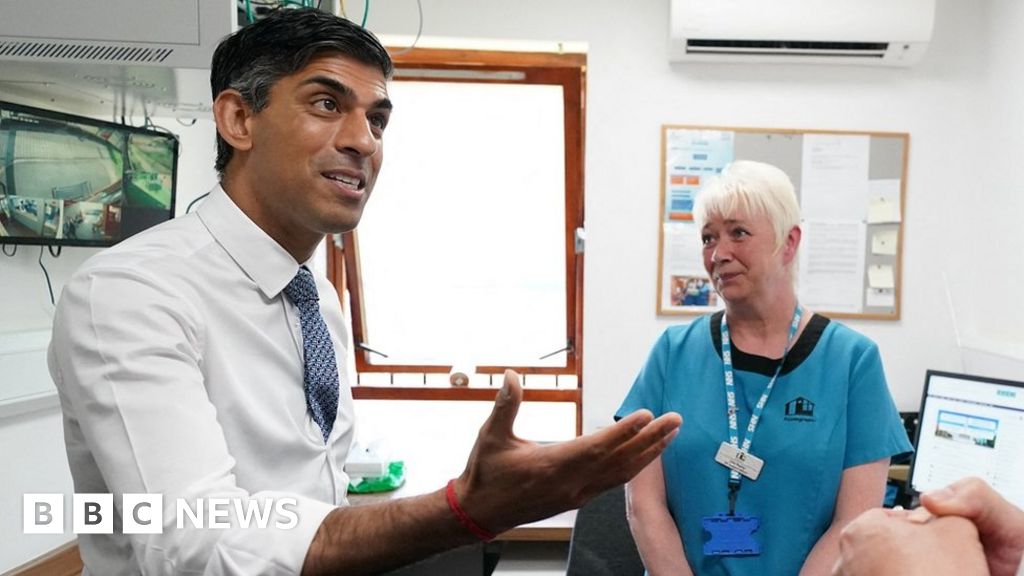In order to control inflation, Rishi Sunak has said he will make the "responsible" decision regarding pay raises for public sector employees.
Due to a below-inflation offer of a 5% pay increase this year, junior doctors in England will go on a five-day strike.
After several independent pay review bodies released their findings, ministers confirmed they are now taking next year's pay agreement into consideration.
The "right" decisions would be made "for the country," according to Mr. Sunak.
The planned junior doctor walkouts, which the prime minister described as "very disappointing," he claimed would "make it harder" to reduce NHS waiting lists, one of his top priorities for the government.
People need to understand the economic environment in which we find ourselves, he said, adding that he would make the best choices for the nation.
He said, while visiting Nottinghamshire, "I think everyone can see the economic context that we're in with inflation higher than we'd like it and it's important that in that context the government makes the right and responsible decisions on things like public sector pay.".
"Those are the right things for everyone that we get a handle on inflation. That's not always easy, and people might not like that. ".
Ministers are free to reject or only partially heed the advice of the pay review bodies because it is not legally required that the government follow their recommendations.
Any decision to disobey the recommendations of the pay review body would be "driven by politics, not economics," according to Trades Union Congress (TUC) assistant general secretary Kate Bell.
She stated on BBC Radio 4's Today program that public sector salaries had "well lagged inflation" and that there had been a "15-year wage squeeze" during which salaries had not kept pace with price increases.
It is a bit over the top to hear the government say, "Well, we're going to overturn those independent recommendations," before we have even seen the recommendations published. " .
According to The Telegraph, in an effort to prevent upcoming strikes, junior doctors in England will be given an additional £1,000 annually in addition to a 6 percent pay raise.
Official statistics show that over 500,000 appointments have been rescheduled as a result of NHS employees' strikes in the past six months.
In order to make up for 15 years of raises that were below inflation, the doctors' union, the British Medical Association (BMA), has been asking for a 35 percent raise.
Pay increases above 5%, according to the Treasury, could lead to inflation. However, the BMA argued that the offer was not "credible.".
The longest junior doctor strike in history was approved by doctors who are represented by the BMA and will take place from 07:00 on Thursday, July 13 until 07:00 on Tuesday, July 18. More than 46,000 junior doctors are represented by the union in the UK.
Around half of all hospital doctors in England and a quarter of all doctors working in GP offices are junior doctors.
For doctors, the unemployment rate is about 6%; for nurses, it is almost twice as high.
Many claim there is still a shortage because there aren't enough training positions or funded doctor positions in the NHS.
The "largest expansion in training and workforce" in the history of the NHS is expected to be detailed in government plans, according to Mr. Sunak's announcement on Sunday.
According to the prime minister, the plans would lessen "reliance on healthcare professionals with foreign training."







